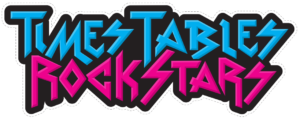At Heptonstall, we are committed to raising the outcomes for children in each and every subject but especially the core curriculum subjects such as maths. Mathematics plays a pivotal role within the overall context of the curriculum as it is based on patterns and relationships from the world around us as it can be and is applied in almost all other curriculum areas as well as real life situations. Our school wishes to give all pupils the confidence to make sense of the world in which they live, by the understanding of, and the ability to think and communicate in, the language of mathematics.
Our aims for maths are that pupils can;
- Have the quality teaching and resources needed for them to progress and achieve.
- Become fluent in the fundamentals of mathematics, including through varied and frequent practice with increasingly complex problems over time, so that pupils develop conceptual understanding and the ability to recall and apply knowledge rapidly and accurately.
- Reason mathematically by following a line of enquiry, conjecturing relationships and generalisations, and developing an argument, justification or proof using mathematical language.
- Can solve problems by applying their mathematics to a variety of routine and non-routine problems with increasing sophistication, including breaking down problems into a series of simpler steps and persevering in seeking solutions.
How our maths curriculum is constructed
For years 1 – 6, we follow the National Curriculum as defined by the Department for Education and The White Rose Maths mixed aged Maths scheme of work. For reception, we follow the EYFS framework, and The White Rose Maths Reception scheme of work.
We believe that a secure understanding of number and place value is an important building block that must be in place before moving on to any other, more complex mathematics, hence why each teacher dedicates the start of the school year to teaching and developing their class’s understanding of number and place value.
The maths curriculum is underpinned by providing our children with opportunities to become fluent in concepts, to reason and to problem solve. They do this by using concrete, pictorial and abstract methods. To help us to deliver the curriculum in a coherent way, we use White Rose Maths where it is broken down into small steps, which we teach discretely in our lessons. Each year group has specific calculation methods and strategies that are used to teach their maths curriculum.
At Heptonstall, maths takes place daily. We teach to the top, allowing all children to access their own year group’s curriculum. Intervention is planned for in order to make sure knowledge is secure before moving on. Within each lesson, we aim to build on previous knowledge and scaffold the children to progress further and achieve the objective set by the teacher. Responsive teaching is implemented as much as possible in which teachers and teaching assistants are assessing the children within the lesson to ensure, if they are struggling, that they receive the help that is needed and any misconceptions are addressed before the end of the lesson.
Mental maths, arithmetic and times tables are at the heart of our maths teaching and underpin much of the learning in key stage 2.
Maths Progression Map
Calculations Policy – Times Tables
Calculations Policy – White Rose Maths
Calculations Policy – Whole School
Calculations Policy – Year 1 and 2
Calculations Policy – Year 3 and 4
Calculations Policy – Year 5 and 6
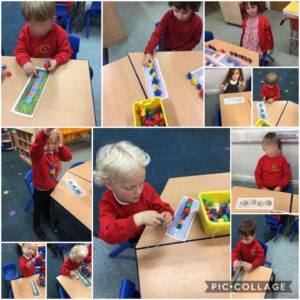
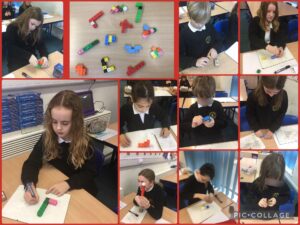
Maths Must Knows
Here is a selection of the Must Knows that we provide for each year group, for each maths unit covered. These Must Knows are designed to be used at home by parents as part of homework and revision, in school to supplement work in lessons and to recap previous learning. We want every pupil to be able to recall the facts given on the sheet but also to practise the methods taught. These are carefully structured so that knowledge and vocabulary are sequenced and built upon over time. We are confident that these Must Knows will help our children to develop and retain key knowledge on a wide range of topics and will significantly improve their vocabulary.
Long Term Plans
Acorn
Saplings
Oak
Times tables
At Heptonstall we use and follow the times table fluency programme by Number Sense Maths.
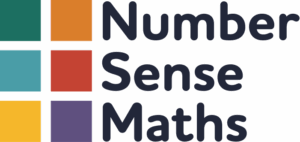
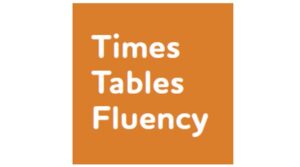
The Times Tables Fluency programme builds fluency in multiplication and division facts and an understanding of multiplicative relationships.
At the core of the programme are 36 essential times table facts. The programme focuses on developing understanding and recall of these 36 facts, and on using them to know the commutative multiplication facts up to 9 x 9 and the inverse division facts. Later in the programme, in preparation for the Year 4 Multiplication Tables Check, the 11- and 12-times tables are also taught in a lighter touch way, as well as practice of the 10 times table.
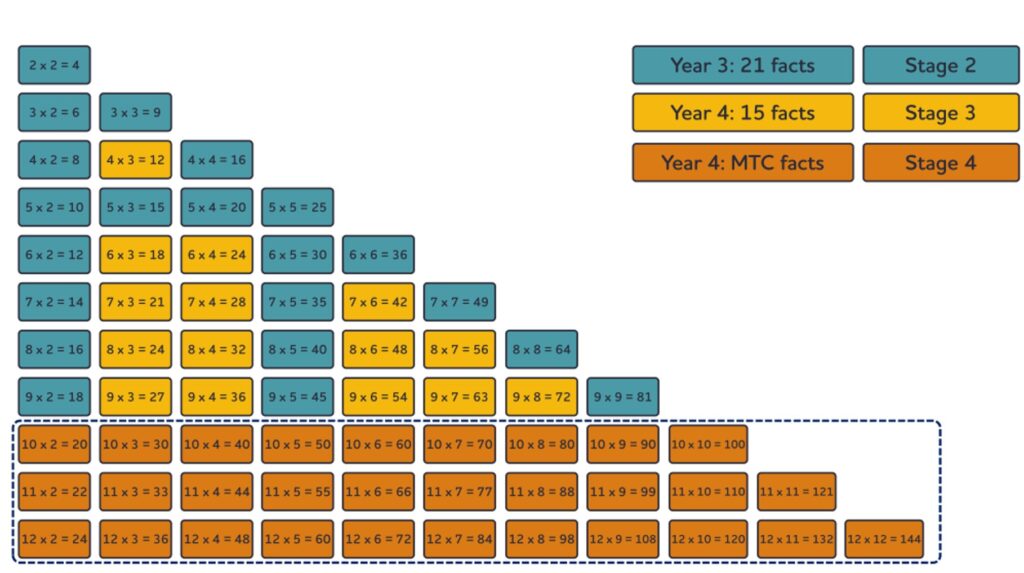
The Times Tables Fluency programme follows a 5 step teaching approach. Each step is critical to ensure every child becomes fluent in both factual recall and understanding of concepts.
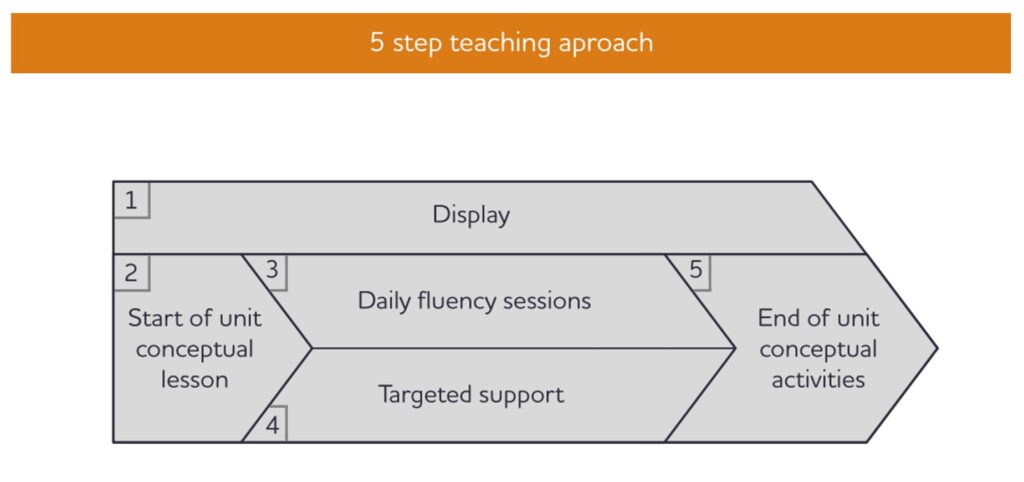
Daily fluency sessions involve children recalling facts they already know in a practice booklet, and learning facts they don’t yet know as verbal sound patterns. Booklet scores are taken in at the end of every session to identify anyone who needs targeted support at the earliest opportunity.
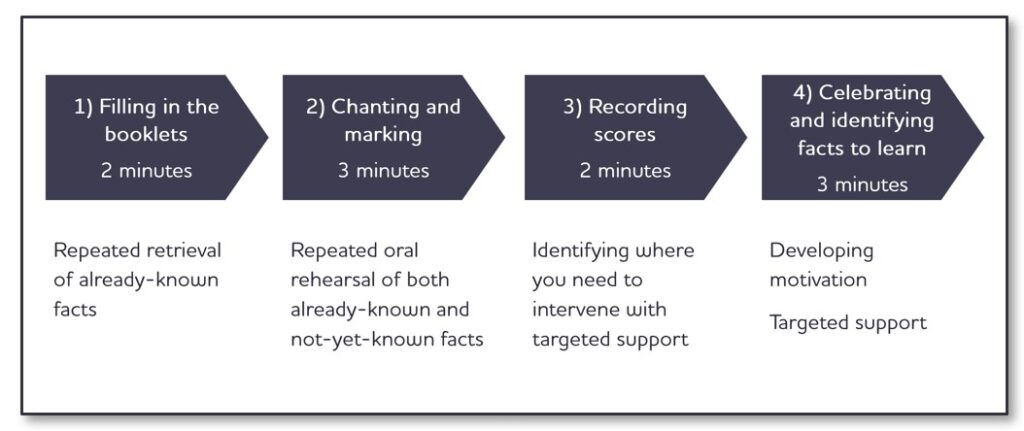
Programme overview document
Year 3 overview document
Year 4 Overview document
Family handout document
Multiplication tables check
Do you have a child in year 4 at primary school? If so, your child will be participating in the multiplication tables check in June. The purpose of the check is to determine whether your child can fluently recall their times tables up to 12, which is essential for future success in mathematics. It will also help your child’s school to identify if your child may need additional support.
What is the Multiplication tables check?
It is an on-screen check consisting of 25 times table questions. Your child will be able to answer 3 practice questions before taking the actual check. They will then have 6 seconds to answer each question. On average, the check should take no longer than 5 minutes to complete.
What if my child cannot access the check?
There are several access arrangements available for the check, these can be used to support pupils with specifc needs. Your child’s teacher will ensure that the access arrangements are appropriate for your child before they take the check in June. The check has been designed so that it is inclusive and accessible to as many children as possible, including those with special educational needs or disability (SEND) or English as an additional language (EAL). However, there may be some circumstances in which it will not be appropriate for a pupil to take the check, even when using suitable access arrangements. If you have any concerns about your child accessing the check, you should discuss this with your child’s headteacher.
Do I need to do anything to prepare my child for the check?
No, you do not need to do anything additional to prepare your child for the check. As part of usual practice, teachers may ask you to practise times tables with your child. Schools will have unlimited access to a try it out area from March. They can use this to make sure pupils have the necessary support required to access the check. This includes opportunities for pupils to familiarise themselves with the check application and try out any access arrangements that may be required.
How will the results be used?
Schools will have access to all their pupils’ results, allowing those pupils who need additional support to be identifed.
Will I receive feedback on my child’s check?
Yes. Your child’s teacher will share your child’s score with you, as they would with all national curriculum assessments. There is no pass mark for the check.
The websites below are a useful tool for your child to practise as they mimic the actual test they will sit in June.
https://tt.serveweb.co.uk/quiz
https://www.timestables.co.uk/multiplication-tables-check/
https://mathsframe.co.uk/en/resources/resource/477/Multiplication-Tables-Check
Useful Information & Websites
Useful Websites
Multiplication tables check
Maths Shed
Times Tables Rock Stars
